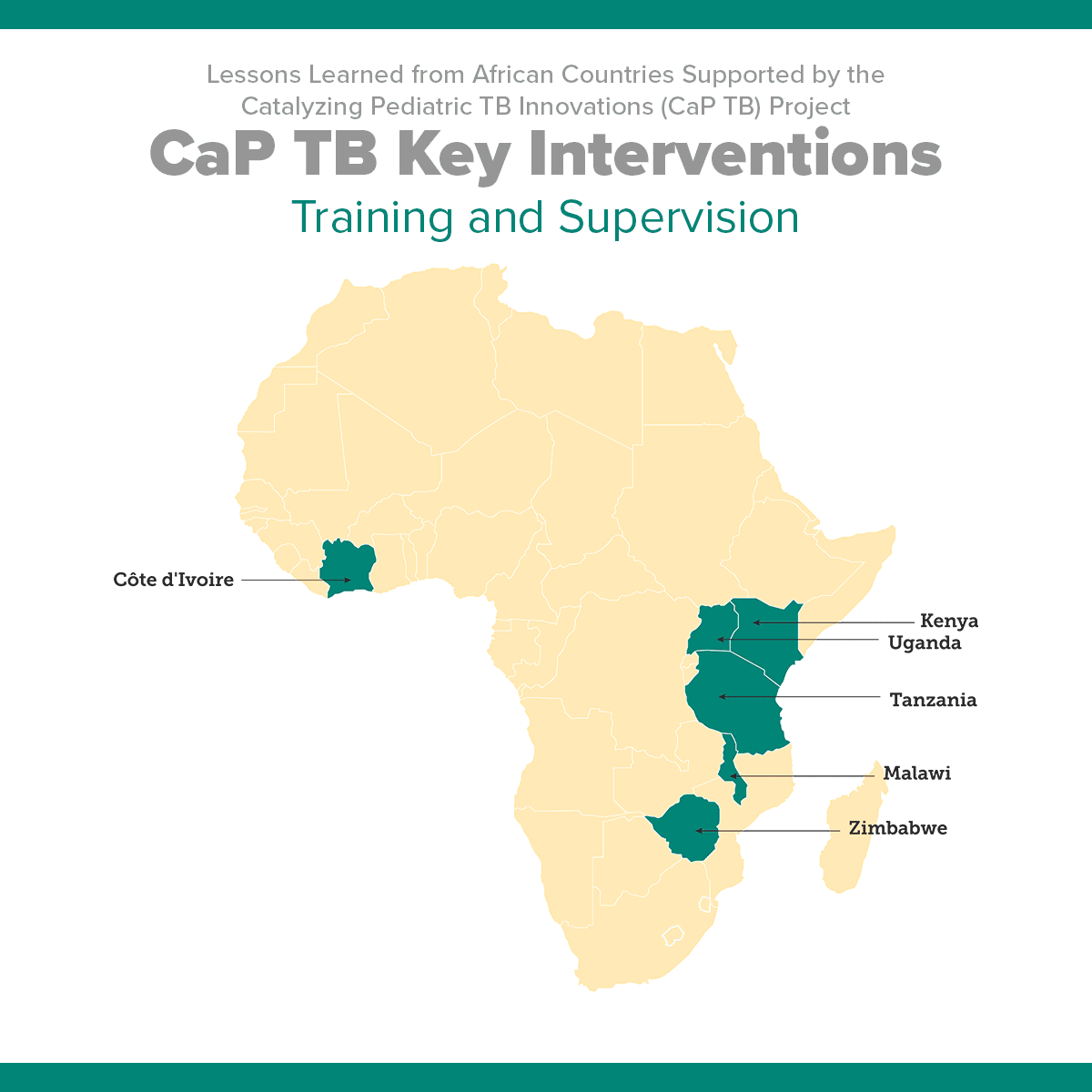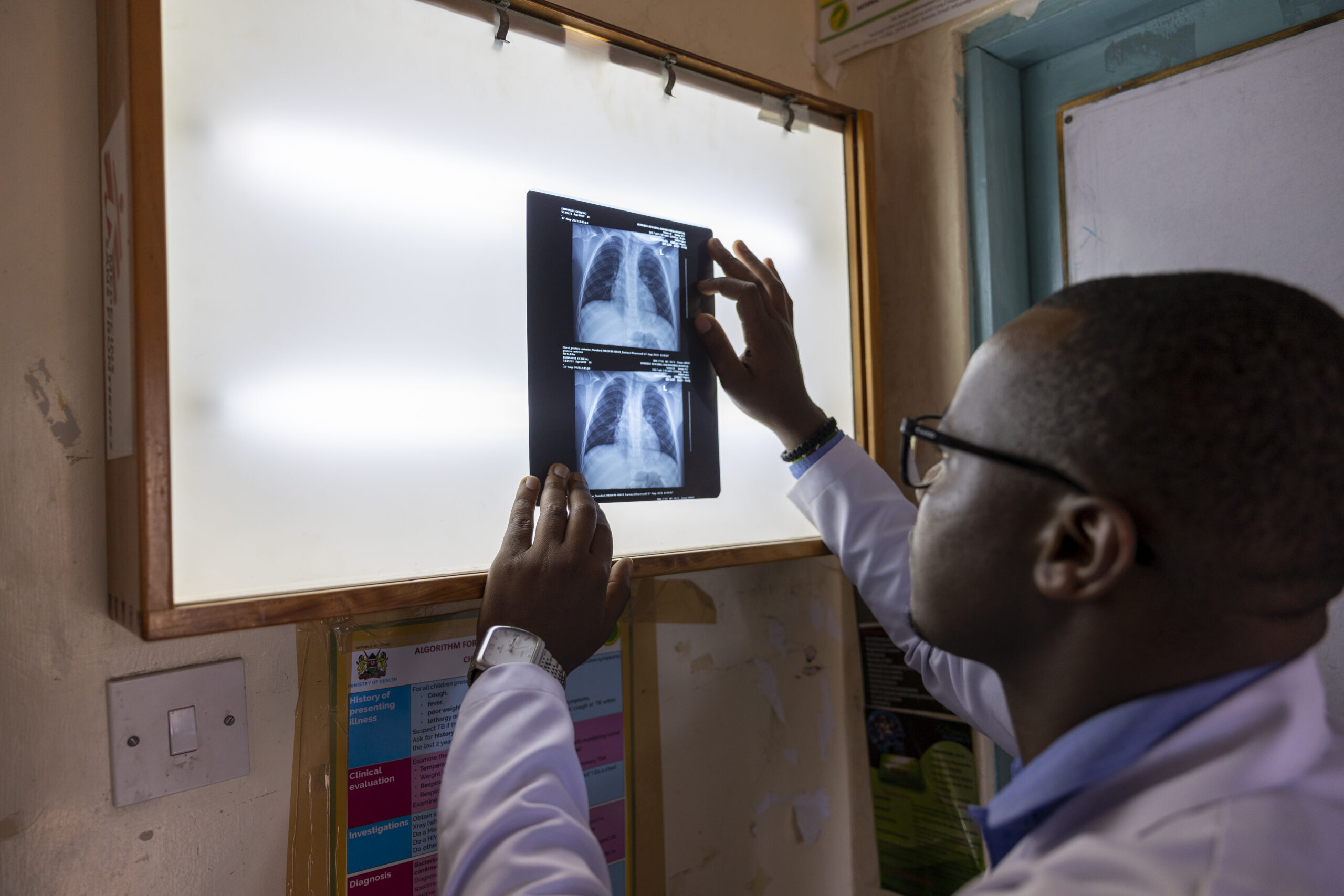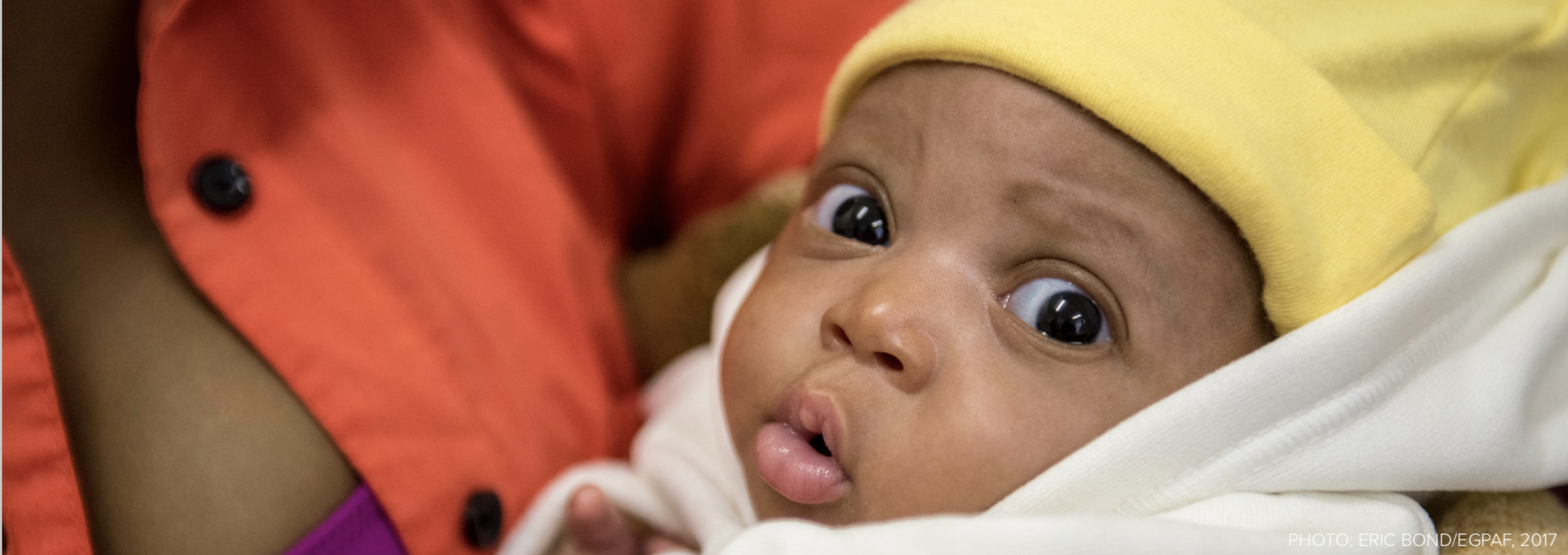EXECUTIVE SUMMARY
The Catalyzing Pediatric TB Innovations (CaP TB) project was one of the Elizabeth Glaser Pediatric AIDS Foundation (EGPAF) projects funded by Unitaid. It aimed to develop and implement models to improve case detection for active pediatric TB disease as well as access to TB preventive therapy (TPT). This project was implemented for four years (2017–2021) in India and nine sub-Saharan African countries: Cameroon, Côte d’Ivoire, Democratic Republic of the Congo, Kenya, Lesotho, Malawi, Tanzania, Uganda, and Zimbabwe.

This documentation of lessons learned on the CaP TB project aims to identify commonalities across countries for each intervention, explain how each intervention was implemented in the different country contexts, indicate what worked well and what didn’t, and determine what recommendations could be made to scale up the model in the pilot countries and replicate the project elsewhere. A qualitative approach was the most suitable method of inquiry to document the key lessons learned.
A purposive sample of 10–15 key informants at each country level was identified in consultation with the global and country EGPAF CaP TB project teams. A total of 90 qualitative interviews, including in-depth interviews and group discussions, were conducted from October 24, 2021 to November 10, 2021. These interviews were conducted virtually using Zoom and WhatsApp. A verbal consent from the participants was obtained prior to the recording of the interviews.
Interviews were conducted in English and French and transcribed verbatim in English; those that were conducted in French were first translated and then transcribed in English. All transcripts were then uploaded into Atlas.ti for analysis using a thematic approach.
The findings of this documentation show that improvement of pediatric TB programmatic management and delivery of health services can be achieved across different countries and settings. Strong leadership from national TB program (NTP) managers, facility managers, and health care providers is paramount. Proper advocacy at the community level involving celebrities (as in Côte d’Ivoire), community leaders, and former TB patients and development of contextual information, education, and communication materials on childhood TB can increase the uptake of pediatric TB services in African countries and thus contribute to increased pediatric TB case finding, treatment, and prevention. There are some critical health systems factors and beneficiary factors that must be considered to improve TB prevention and management in children. The following are needed: increased health care worker and community health worker capacity, additional human resources to ease the workload of clinicians and ensure that some functions of TB case finding are performed by lay workers, financial support for both patients and parents/guardians, adequate supply and management of commodities (drugs and equipment for diagnosis), and increased levels of awareness of parents/caregivers about advanced sample collection for TB in children, among other improvements. Hence, for NTP managers and health care providers to capitalize on lessons learned from the CaP TB project, a proper continuation plan with secured funding sources should be developed. The plan should address the challenges identified by the CaP TB project, enact the recommendations for improvement, and strengthen the health systems at large, especially in the context of the global pandemic of COVID-19. In this way, countries will be able to sustain the outcomes of the CaP TB project and improve childhood TB prevention and management.
Unitaid is a global health agency engaged in finding innovative solutions to prevent, diagnose and treat diseases more quickly, cheaply and effectively, in low- and middle-income countries. Our work includes funding initiatives to address major diseases such as HIV/AIDS, malaria and tuberculosis, as well as HIV co-infections and co-morbidities such as cervical cancer and hepatitis C, and cross-cutting areas, such as fever management.
Unitaid is now applying its expertise to address challenges in advancing new therapies and diagnostics for the COVID-19 pandemic, serving as a key member of the Access to COVID Tools Accelerator. Unitaid is hosted by the World Health Organization.




